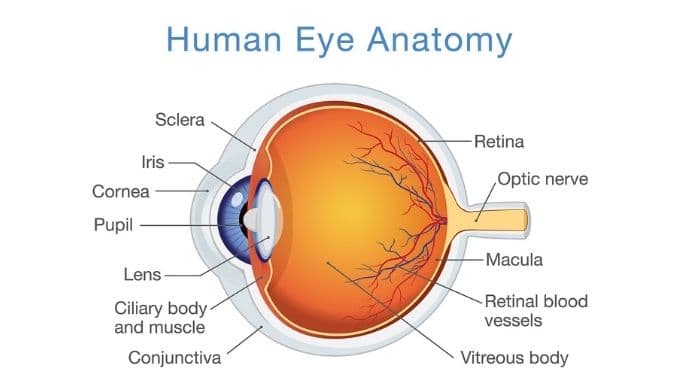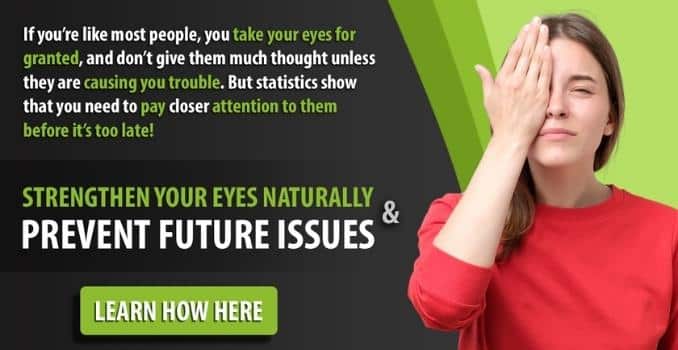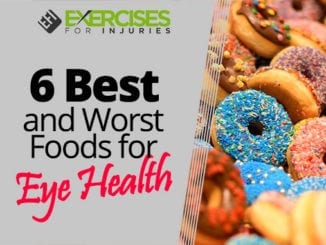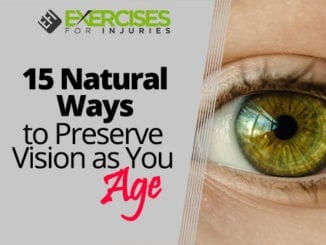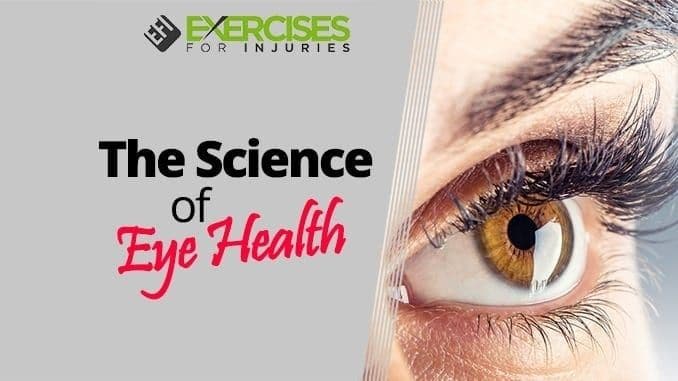
Can we imagine anything more amazing than the human eye? Ever wonder how your eyes capture images and then transmit them to your brain? How digital devices might affect your eyesight? Plus, what sort of vitamins and nutrition help preserve eye health? What about eye exercises — do they improve vision? Let’s answer all these questions and also get the best eye care tips and The Science of Eye Health.
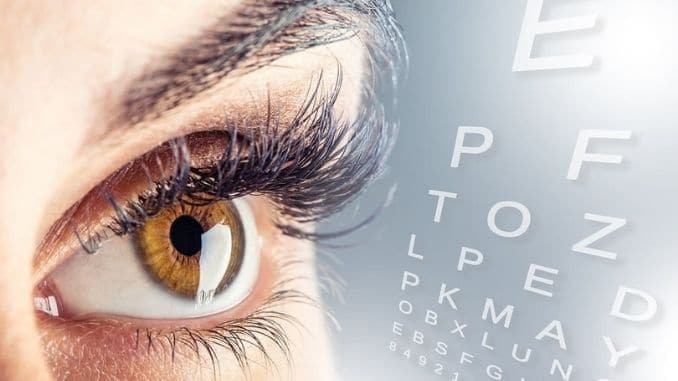
How Do Your Eyes Work?
Let’s discover the Science of Eye Health. The human eye and a picture camera are incredibly similar. The camera has a lens cover to protect the lens and so does the eye. This outermost layer of your eye is the cornea. It’s a clear cover that offers protection. After light passes through your cornea, it goes through your pupil which is just a hole to let light in — just like a camera has a hole. The size of the opening can be changed to adjust for different amounts of light. This adjustment happens thanks to the iris, which is responsible for adjusting your pupil size. The iris also determines the color of your eyes.
From there, light passes through the lens of your eye. Again, similar to a camera, the lens can be adjusted in size and thickness allowing you to focus. Lens shape is changed thanks to muscles attached to the lens. Most of the space in your eye is filled with a gel-like substance called the vitreous. Light passes through the vitreous and eventually lands on the retina which is the inner lining on the back of your eye.
Similar to film in a camera, the retina captures light rays which get processed by millions of nerve endings. These nerves eventually join together to form the optic nerve which transmits light signals to your brain to interpret the image.
Carrots And Night Vision
When you were a kid, your mom told you to eat your carrots because they’re good for your eyes. Is this true? Even as far back as the Middle Ages, it was believed that carrots could prevent sexually transmitted diseases and cure snake venom illness. Later, during World War II, the British Royal Air Force popularized a story that claimed ace fighter pilot John “Cat’s Eyes” Cunningham ate carrots to maintain his night vision flying skills. From that point on, carrots have taken on an almost mythical status regarding eye health.
There’s some debate as to whether carrots can improve your vision, but all experts agree that this vegetable is one of the best for preserving eye health. Carrots are rich in beta-carotene, a special pigment found in several fruits and vegetables. Beta-carotene is important for the production of vitamin A. Lack of vitamin A can lead to blindness is one of the facts of the Science of Eye Health.
You Could Turn Orange
Other foods rich in beta-carotene are sweet potatoes, mango, pumpkins, apricots, and cantaloupe. Still, before you start stuffing yourself with these foods hoping to make your eyes stronger, be careful. Too much beta-carotene pigment can turn your skin orange.
The Most Important Vitamins For Your Eyes
Carrots and leafy green vegetables are the best sources of nutrition for your eyes. These foods are rich in antioxidants, vitamins C, E, A, and zinc, along with carotenoids like lutein and zeaxanthin. If you want to protect your eye’s macula, lens, and cornea while also lowering free radical damage and inflammation, you should include these veggies in your diet. Research on the Science of Eye Health shows your diet plays a major role in preventing age-related macular degeneration and cataracts.
What’s The Macula?
The macula is a very special part of the eye in the center of the retina. The macula is responsible for allowing you to see what is directly in front of you. When you read, write, or distinguish colors, this area of the eye is hard at work. It’s the part of the retina that is most involved in seeing visual details.
Macular degeneration can lead to damage of the macula over time. When this occurs, you may lose sight of the center of your visual field. So, instead of seeing an entire image, there would be a very distorted hole in the middle. Exercise, a healthy diet and not smoking protect you from developing macular degeneration one of the Science of Eye Health.
What Are Other Common Causes Of Vision Loss?
Cataracts occur when the lens of the eye gets clouded. Treatment for cataracts is typically surgical. Another common cause of blindness is diabetic retinopathy. If you have diabetes, the increased blood sugar in your system could gradually damage your retina. The best way to prevent diabetic retinopathy is by controlling your blood sugar, blood pressure and cholesterol.
1. Lutein and Zeaxanthin — The Eye Vitamins
Of all the nutrients that benefit your eyes, lutein might be the most valuable. This carotenoid antioxidant is found in leafy green vegetables — especially spinach and kale — egg yolks, citrus fruits, and orange-colored vegetables. A study at Harvard University found that supplementing your diet with 6 milligrams of lutein each day may decrease the risk for macular degeneration by up to 43 percent. Zeaxanthin is another extremely beneficial carotenoid that helps protect the macula and may also prevent cataracts.
2. Vitamins A, C and E
These fat-soluble antioxidants help reduce the risk of age-related macular degeneration. Plus, if you plan on having any kind of laser eye surgery, vitamin E and vitamin A may help promote post-operative healing. These vitamins might also have a role in preventing cataracts. What foods have all three vitamins? Try broccoli, spinach, and kale.
3. Zinc
This mineral is important for many biological processes in your body. Because humans can’t produce it on their own, we have to get zinc from our diet. Foods rich in zinc include oysters, beef, lamb, toasted wheat germ, spinach, pumpkin seeds, nuts, dark chocolate, pork, chicken, beans and mushrooms. Zinc also may protect the retina from macular degeneration.
Is Blue Light Bad For Your Eyes?
White light is made of an entire spectrum of colors of light which you can see in a rainbow. The colors on the blue end of the spectrum have shorter wavelengths and carry more energy. Blue light penetrates deeper into your eye, and overexposure to blue light may lead to retinal damage.
Blue light can be found in sunlight, fluorescent lights, LED lights, and from computer or device screens. In most cases, blue light is good for you since it helps maintain your body’s normal day and night rhythm (circadian rhythm). However, with increased exposure to digital screens, the worry is that we get too much blue light, which could be harmful.
The best way to avoid blue light is to limit your screen time as much as possible. This is especially important for children. Also, many devices these days have built-in blue light filters or nighttime modes. You can also purchase filters that you place over the screen or even wear special glasses that filter out blue light.
Do Eye Exercises Work?
There’s a lot of controversy swirling around eye exercises. These techniques generally involve focusing and eye movement exercises. Some claim that people can get rid of their glasses altogether using this regimen. The problem is that there’s not much scientific evidence to back up the claims. There have even been some lawsuits against companies that provide these techniques.
While there is probably no danger associated with eye exercises, the routines may take anywhere from 15 to 30 minutes to perform each day. Also, some state that if you stop doing the exercises, your vision will get worse again.
-
Exercise Does Work
Now exercise that involves moving your entire body does appear to be very useful for protecting your eyes. Regular physical activity may decrease the risk of age-related macular degeneration by up to 70 percent. Even if you walk 12 blocks regularly, your risk could go down by up to 30 percent.
Eye Safety
One of the most overlooked ways to protect your eyes is through simple home and work safety. For example, when working outdoors, safety goggles can protect your eyes from snapped branches or flying debris. Plus, if you’re very active in sports, you can purchase clear lens glasses to protect yourself from an eye injury. Finally, make sure you follow all safety recommendations for eye protection in the workplace.
An Amazing Part Of The Body
If there’s anything we see over and over again, a healthy lifestyle protects your entire body. Your eyes are no exception. Eating right and exercising are the best ways to protect and preserve your vision.
The eyes are called the “windows to the soul.” And they are one of nature’s most complex wonders! Get the 14-Day Eye Health Quick Start Program today and empower yourself against eye disorders naturally and safely!

